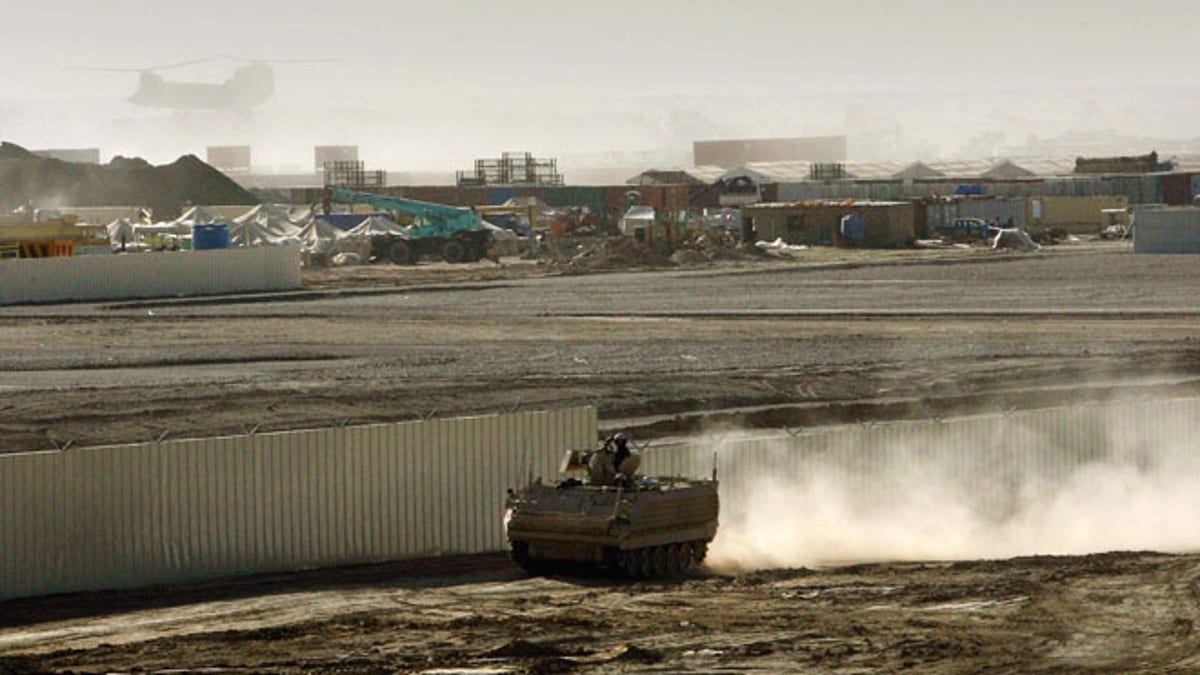
An armored vehicle patrols on the periphery of Camp Bastion in southern Afghanistan, in this Wednesday, Jan. 10, 2007 file photo. (AP)
WASHINGTON – U.S. commanders at a base in Afghanistan where two Marines were killed in a surprise insurgent attack last year had no explicit warning but intelligence officers there had "consistent indicators" of Taliban interest in attacking, according to an investigation report released Tuesday.
The U.S. Central Command investigation's conclusions led the top Marine, Gen. James Amos, to announce on Monday that he had forced two senior Marine generals to retire early. Amos held Maj. Gen. Charles Gurganus and Maj. Gen. Gregg Sturdevant responsible for failures to protect their forces.
The Central Command's report indicated that the Marines at Camp Bastion, one of the largest coalition airfields in Afghanistan, could have foreseen the possibility of a Taliban effort to penetrate the base's perimeter on the night of Sept. 14, 2012.
It said the base's intelligence officer reported that the threat to all major installations was "high" at the time of the attack and that there were "consistent indicators that the Taliban wanted to gain access" to Bastion and attack it.
A group of 15 Taliban fighters used wire cutters to cut through a chain link fence on Bastion's perimeter and walked onto the base undetected. They destroyed six Marine fighter jets and wounded 17 people in addition to killing two Marines.
The investigation report said that in the weeks prior to the attack there had been numerous breaches of Bastion's supposedly secure perimeter, some of which had been captured on surveillance videos. One video showed an individual who entered the base through a hole in its perimeter chain-link fence, "looked around inside an empty guard tower and departed again."
It said many people, including Gurganus, who was the commander of all coalition forces in southwestern Afghanistan, had expressed concern about the breaches but "accepted them" as related to theft or other incursions that did not necessarily pose a security danger to the Marines.
The report faulted Gurganus for failing to take sufficient actions to ensure security prior to the attack.
"He underestimated the threat posed by the enemy's capabilities, overestimated U.S. and coalition capabilities to counter that threat and failed to take prudent steps to counter or mitigate an enemy attack," it concluded.
Sturdevant, who commanded the Marine aviation unit in the region, mistakenly assumed that other military units on Bastion would provide adequate protection for his aviation forces, the report said.
"This misjudgment unnecessarily exposed his personnel and equipment to enemy attack," it said.
Sturdevant and Gurganus issued statements Monday saying they respected Amos' decision.




